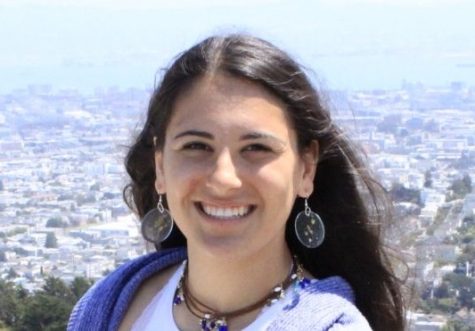OCD: what you think you know — and what you really don’t
Do you fold your clothes a certain way? Are you an organized person? Do you wash your hands before every meal? Ask anyone — a coworker, a teacher, a family member — and they will most likely tell you that you have OCD.
Obsessive Compulsive Disorder (OCD), more commonly known as Obsessive Cleaning Disorder, is a term that people attach to neat freaks and germaphobes. We often associate OCD with anything from having the best AP World notes to wanting to take a shower immediately after a workout.
“Someone with OCD would look at a poster in my room, and if it’s slightly crooked, they would go and adjust it because it makes them mad,” freshman Luca Matei said.
But you don’t have to wait for someone else to tell you that you have OCD. In fact, “I have self-diagnosed OCD” is one of the most common ways people can imply that they are a clean, organized person.
However, if you have any one of the aforementioned ‘symptoms,’ you may consider reaching out — to a sufferer of OCD. One who has gone through the fears that come with it, one who has received therapy for their condition, one who has tirelessly fought off their compulsions to get some mental relief because OCD, contrary to popular belief, is a clinical disorder that entails a lot of pain and suffering.
“I used to think that OCD was more of wanting things to be clean and organized rather than being a serious mental disorder, but I guess that I didn’t really know what it was,” junior Ally Hughes said.
According to Jessica Gilmour, Monte Vista’s student support counselor, “OCD can manifest itself in different ways for different people… and it’s really difficult for people with the disorder to move through the day.”
Beginning in seventh grade, I started to experience severe symptoms of OCD. But I wasn’t able to get a diagnosis until the end of middle school because OCD was a “cleaning disorder.”
“An automatic response for a lot of people [when they hear ‘OCD’] is to think about cleaning and cleanliness,” Gilmour said.
Here’s an example: Your friend is super organized. You go over to their house and see that everything is spotless. You assume that your friend is Obsessed with Cleaning, so they must have Obsessive Cleaning Disorder, right? Wrong.
While some with OCD are neat and organized and hygenic, it isn’t because they want to have an orderly life with a made bed and clean socks. Rather, it is because they have obsessions: intrusive, unwarranted thoughts that trigger anxious behaviors, or compulsions.
Let me clarify. Say that your friend is super organized, and their room is beautiful, etcetera etcetera. But let’s also say that your friend spent hours folding their clothes a certain way because they were worried that, if they hadn’t, someone would assault them, or their dog would die, or an earthquake would destroy the state of California.
But that doesn’t make sense. Shouldn’t people with OCD know that not organizing your closet won’t lead to the end of the world? Shouldn’t they know that doing something as arbitrary as folding clothes won’t lead to something more drastic? They do, but they also don’t have the filter in their brain that prevents those thoughts and the anxiety that comes with them.
When I was in the clinical stages of OCD, I would have obsessions such as “My mom will die if I don’t…” and the compulsions I would later complete — rewriting a word without erasing it, poking at an item on my desk, picking something up and putting it back down, blinking rapidly, readjusting a pencil over and over — finished the thought.
And so OCD stole my life. Basic tasks, like writing a five-sentence summary, took up to three hours. Washing my hands, 15 minutes. Walking from my room to the kitchen would take 10.
Three years of therapy would later help me cope with the disorder, but in the meantime, I had to deal with the stigma that came with it. Friends would tell me that what I had “wasn’t OCD,” and my dad even gave me his own personal diagnosis: Pretend OCD, or POCD for short.
What I saw online and in TV shows, like Friends with an anxious Monica Geller or The Big Bang Theory with a ritual-obsessed Sheldon Cooper, only proved them right. I felt alone to the point that I didn’t realize that over 700,000 kids in the U.S. struggled alongside me.
Looking back, I realize that I was lucky — lucky to know what I was dealing with. Some of those 700,000 will later become adults with OCD, and they will spend their lives wondering what is wrong with them, thinking they’re alone, never knowing that they’re not.
“Living with OCD is difficult,” Hughes said. “Doing normal things everyday can bring challenges and obstacles into your life that other people don’t really know about, and it can especially make your life more difficult when people don’t understand what you’re going through. They think they get it, but they don’t.”
But there is hope yet. If our most popular entertainment platforms can learn to show mental health disorders in an accurate light — through movies such as The Aviator and TV shows such as Atypical — we will eventually understand that OCD is not something to be poked fun at. And if people learn to educate themselves before making assumptions, if we spread awareness, if we do everything in our power to get resources to sufferers of OCD, then change will come.

Seta Salkhi is a senior in her third year of the journalism program. As this year’s managing editor,...






